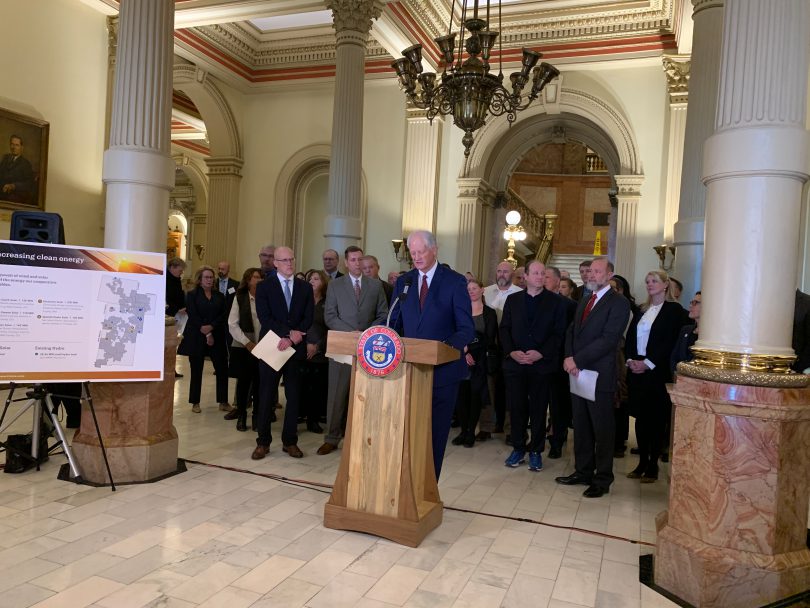The closures of coal-fired power plants announced in mid-January and the addition of eight new solar and wind projects adding 1 gigawatt of renewable energy mean cleaner electricity for 18 of Colorado’s 22 electric co-ops.
Tri-State Generation and Transmission Association, which supplies electricity to the majority of Colorado’s electric co-ops, is closing Escalante Station in New Mexico by the end of 2020 and Craig Station plant and Colowyo Mine in northwestern Colorado by 2030. It has also cancelled the Holcomb coal project in Kansas and committed to cease development other coal facilities.
“Serving our members’ clean energy and affordability needs, supporting state requirements and goals and leading the fundamental changes in our industry require the retirement of our coal facilities in Colorado and New Mexico,” said Rick Gordon, chairman of the board of Tri-State.
These closures, along with the new resources announced, are part of Tri-State’s Responsible Energy Plan that is fundamentally transforming the power supplier while maintaining a strong financial position and stable rates. Six new solar projects and two wind projects will be added to Tri-State’s portfolio by 2024 at which time it will provide 50% of the electricity consumed will come from renewable resources.
Tri-State’s clean energy transition significantly expands renewable energy generation while reducing greenhouse gas emissions and extending the benefits of a clean grid to its cooperative members. It will also share more flexibility for self-generation with members.
“We’re not just changing direction, we’re emerging as the leader of the energy transition,” said Tri-State CEO Duane Highley.
Tri-State is focused on the needs of the 600 employees and their communities that are affected by the closures.
“As we make this difficult decision, we do so with a deep appreciation for the contributions of our employees who have dedicated their talents and energy to help us deliver on our mission to our members,” Highley said.
Tri-State will work with state and local officials to support affected employees and their communities during the transition. “Our focus is on making these changes with the care and respect our employees and their communities deserve — easing the transition whenever and wherever possible,” Highley said.

